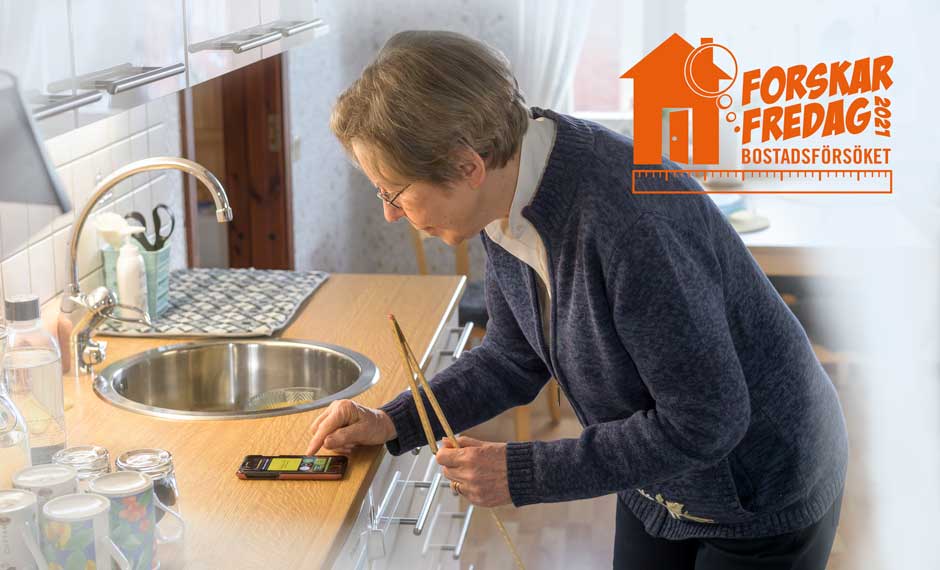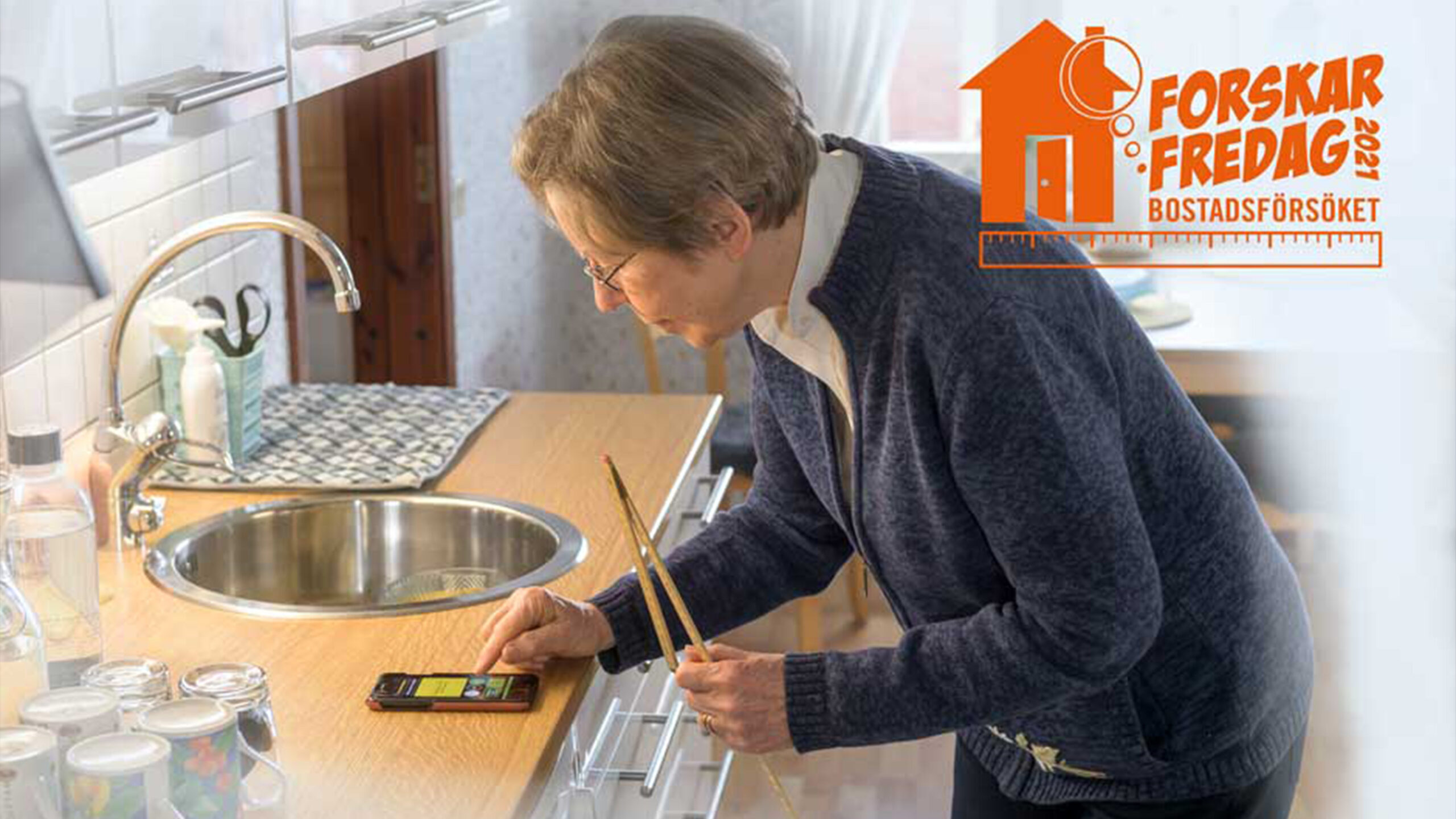In order to live independent and active lives, we need housing that is designed to meet our needs. But how accessible is Swedish housing? School pupils and senior citizens across Sweden will be helping researchers at Lund University to investigate as part of the 2021 Housing Experiment. The mass experiment is a citizen science project being organised as part of this year’s Researchers’ Night activities in Sweden, known as ForskarFredag.

“Sweden’s population is ageing, and many elderly people want to be able to continue living in their own home for as long as possible. Unfortunately, there are various environmental barriers in the home that can reduce people’s ability to maintain an active life,” said Susanne Iwarsson, Professor of Gerontology, who works at the CASE research centre at Lund University and is the scientific lead for the Housing Experiment.
Stairs are an example of a common environmental barrier. Also, if there is also no elevator, it is difficult to get around using mobility aids, such as a rollator. Unfortunately, there is currently a lack of reliable and nationally-comparable data on the environmental barriers that are commonly found in Swedish apartments and houses. Susanne Iwarsson and her research colleagues want to address this. In order to collect as much data as possible, they are now turning to Sweden’s senior citizens and school pupils, and anyone else in Sweden who wants to participate in the research project.
“The more people who participate in the Housing Experiment, the larger the amount of data we will be able to collect. Anyone who wants to contribute to research on accessibility issues is welcome to participate in the experiment, regardless of age,” said Susanne Iwarsson.
Measuring tape and app
Using a measuring tape or ruler and a special mobile app to guide participants through the process, they will be asked to measure how accessible Sweden’s homes are. How wide are the doorways? How high are the thresholds? Are the taps difficult to turn on? The results will be available to access via an interactive web page that will provide a picture of the accessibility of housing found in municipalities and regions across the whole of Sweden.
74-year-old Stig Ålund, chair of CASE’s user board, hopes that senior citizens across the country will get involved by testing the accessibility of their own homes.
“It is important that the researchers gather a good evidence base upon which they can formulate conclusions that can lead to different kinds of solutions. We can all do our part. I hope that tech-savvy pensioners can get help from their grandchildren and others close to them,” said Stig Ålund, who is also chair of the Swedish National Pensioners’ Organisation (PRO) in Klippan in northwestern Skåne and a member of PRO’s board in Skåne.
Engaging older citizen scientists for the first time
The Housing Experiment will run from September-October 2021, as part of ForskarFredag, European Researchers’ Night activities in Sweden.
“Thousands of school pupils usually participate in the annual ForskarFredag mass experiment, but this is the first time that we will specifically be engaging those aged 65 years and older. We believe that both pupils and seniors citizens will find it interesting as well as eye-opening to learn more about common barriers found in our homes. What might be just a few steps for one person could be a large obstacle for someone else,” commented Martin Bergman, a researcher at the Swedish non-profit organisation VA (Public & Science) that coordinates the annual ForskarFredag mass experiment.
About the Housing Experiment
ForskarFredag’s mass experiment, the Housing Experiment, is a collaboration between the Center for Ageing and Supportive Environments (CASE), a research centre at Lund University, the pensioners’ associations SPF Seniorerna i Skåne and PRO Skåne and the non-profit organisation VA (Public & Science). The pensioners’ associations SPF Seniors, PRO and SKPF are also supporting the project at a national level.
The Housing Experience is funded by Forte, the Swedish Research Council for Health, Working Life and Welfare, and the European Commission under HORIZON 2020 in the framework of the Marie Sklodowska-Curie actions.
More information can be found on the ForskarFredag website.


